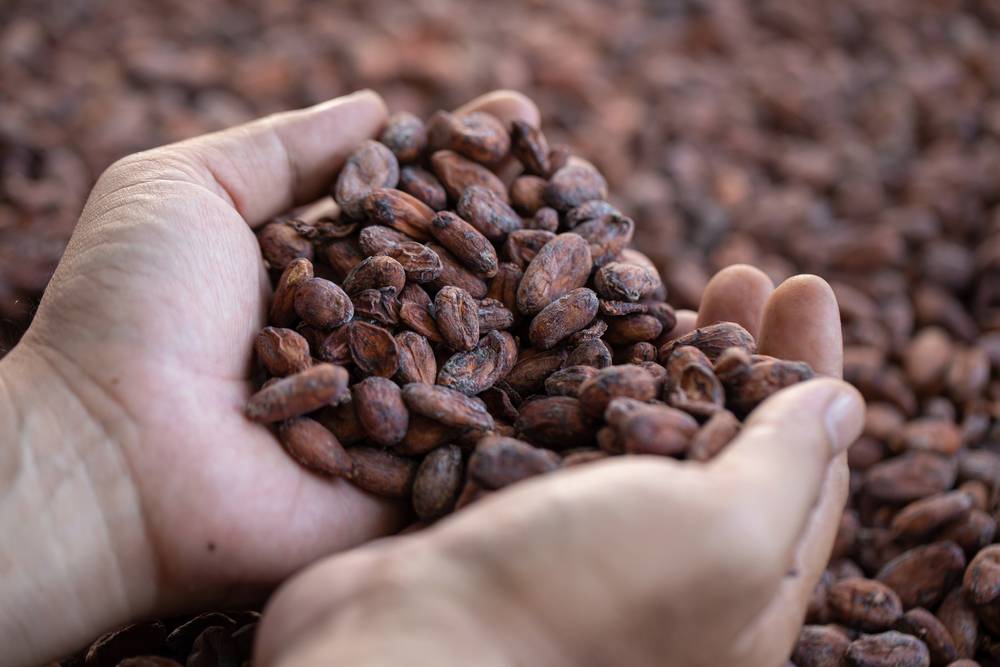Cocoa Extract Supplement May Benefit Cognition Among Older Adults with Lower Diet Quality
Researchers have found new evidence on the effectiveness of cocoa flavanol supplements for cognition. In a randomised controlled clinical older adults with unhealthy diets who took daily cocoa extract supplements experienced cognitive benefits. However, participants who already had healthy dietary patterns did not see these cognitive benefits.
Insights into the Cognitive Benefits of Cocoa Extract
Cocoa extract has shown potential protective effects on cognition, although previous randomised clinical trials in older adults have produced inconsistent results. The Cocoa Supplement and Multivitamin Outcomes Study (COSMOS) suggests that taking cocoa extract supplements containing 500 mg per day of cocoa flavanols can benefit older adults with lower habitual diet quality. This study, conducted by researchers at Mass General Brigham, included 573 older adults who underwent detailed, in-person cognitive testing and was published in The American Journal of Clinical Nutrition.
Findings from Detailed Cognitive Assessments
Over two years, detailed neuropsychological assessments showed that daily cocoa extract supplementation, compared to a placebo, had no overall benefits for global or domain-specific cognitive function. However, secondary analyses indicated that participants with poor diet quality had cognitive benefits from the cocoa extract supplement. These findings are consistent with an earlier study using web-based cognitive assessments for a separate group of COSMOS participants. COSMOS is a large-scale, long-term clinical trial led by Brigham and Women’s Hospital, involving over 21,000 older adults across the United States.
Importance of Genomic Analysis in Cognitive Research
Dr. Chua Tze Hoong, group director of veterinary health at NParks, emphasised the importance of genomic analysis. This method can identify the presence of pathogens in animals, trace their origins, and determine genetic markers that increase virulence.
Genomic analysis provides a detailed understanding of pathogen evolution and transmission patterns, enabling scientists to predict potential outbreaks and implement timely interventions. By analysing genetic materials from environmental samples, researchers can detect pathogens early and prevent their spread.
Study Design and Methods of the COSMOS Trial
The COcoa Supplement and Multivitamin Outcomes Study (COSMOS) is a randomised controlled trial (RCT) involving 21,442 United States adults aged 60 years and older. Participants took either cocoa extract (500 mg flavanols per day) or a daily multivitamin-mineral supplement to test their effects on cardiovascular disease and cancer prevention.
The study included a subcohort of 573 participants who completed all cognitive tests at baseline; of these, 492 completed two-year follow-up assessments. The primary outcome was global cognition, averaged from 11 cognitive tests, while secondary outcomes included episodic memory and executive function/attention. Repeated measures models were used to compare the randomised groups.
Detailed Results and Implications
The participants’ average age was 69.6 years, with 49.2% being female. Daily supplementation with cocoa extract, compared with placebo, showed no significant effect on the two-year change in global cognition (mean difference: −0.01 standard deviation units).
Cocoa extract also had no significant effects on the two-year change in episodic memory (mean difference: −0.01 standard deviation units) or executive function/attention (mean difference: 0.003 standard deviation units). However, subgroup analyses suggested cognitive benefits of cocoa extract supplementation among those with poorer baseline diet quality.
Broader Implications for Cocoa Extract Research
The study highlights the need for further research into the cognitive benefits of cocoa extract, particularly for those with lower diet quality. The potential for cocoa flavanols to improve cognitive function in specific subgroups of older adults is promising and warrants additional investigation. Future studies could explore different formulations, varying doses, and longer follow-up periods to fully understand the cognitive benefits.
Funding and Support for the Research
COSMOS received support from an investigator-initiated grant from Mars Edge, which provided infrastructure support and study pills. Pfizer Consumer Healthcare (now Haleon) also supported the study by providing study pills and packaging. COSMOS is partly funded by grants from the National Institutes of Health (NIH) and the Women’s Health Initiative (WHI) program.
Broader Implications for Public Health and Personalised Nutrition
This study highlights the importance of personalised nutrition and targeted interventions in cognitive health. As the global population ages, identifying effective strategies to maintain and enhance cognitive function becomes increasingly critical. This research contributes to the growing body of evidence supporting the role of dietary supplements, like cocoa extract, in promoting brain health, particularly among vulnerable populations.
Looking Forward
This new study from Mass General Brigham suggests that cocoa extract supplementation could offer cognitive benefits for older adults with lower diet quality. While the overall benefits were not significant across all participants, those with poorer diets showed promising improvements. This highlights the potential for cocoa flavanols as a targeted intervention to support cognitive health in specific groups. Continued research and further clinical trials will be essential to fully understand and harness these benefits for broader application.
References
- Cocoa extract supplement may benefit cognition among older adults with lower diet quality. (2023, December 23). ScienceDaily. https://www.sciencedaily.com/releases/2023/12/231207151255.htm
- Vyas, C. M., Manson, J. E., Sesso, H. D., Rist, P. M., Weinberg, A., Kim, E., Moorthy, M. V., Cook, N. R., & Okereke, O. I. (2024, January). Effect of cocoa extract supplementation on cognitive function: results from the clinic subcohort of the COSMOS trial. The American Journal of Clinical Nutrition, 119(1), 39–48. https://doi.org/10.1016/j.ajcnut.2023.10.031

